
OR
Even elected representatives have chhaugoths at home
Published On: August 23, 2018 08:12 AM NPT By: Nagendra Upadhyaya
SURKHET, Aug 23: A year ago, Bedraj Bhandari of Panchpuri Municipality-10 was elected as a ward member during the local polls. Being an elected representative, his responsibility is to take initiatives to abolish ill practices and traditions of society. Instead of discouraging people to continue Chhaupadi, Bhandari has not been able to demolish the menstrual hut in his very own home.
Like hundreds of other women, female members of his family are banished to the chhaugoth for five days during their periods. It has been a year since the ward office has been conducting awareness programs to eliminate Chhaupadi. Ironically, the ward members who are advocating against Chhaupadi themselves cannot prevent the women of their families from continuing this malpractice.
"We urge others to boycott this practice but our own family members refuse to stay at home during menstruation," said Bhandari, adding, "Instead of decreasing, this practice is spreading further."
In 2014, Tatapani VDC was declared Chhaupadi free. A total of 192 menstrual huts of the village were demolished before the announcement. Now, the village has returned to its old status with almost all women giving continuity to Chhaupadi.
Nayan Singh BK, acting chief of the ward informed that there are more than 50 chhaugoths in ward number 10 alone.
"We had destroyed all those sheds in 2014 but they are being reconstructed again," said BK. According to him, the fear of angering the gods is one of the major reasons why this practice is still widely prevalent.
BK does not have a menstrual hut at his home but the female members of his family go to others' hut during periods. He also mentioned that most of the people's representatives have menstrual huts at their home. It is equally common in Chaukune and Barahatal rural municipalities.
In 2014, all villages of Chaukune too were declared free from Chhaupadi. At that time, 193 community and private chaugoths were demolished. Following the announcement, Patikchya Bahak of Guthu stayed at home for one year even during periods. However, she has returned to sheds all over again. "My family refused to allow me inside the house during menstruation saying that it will anger the gods," said Bahak.
Not just the common women, but even the so-called women leaders encourage Chhaupadi in rural areas. Despite knowing that they are not safe in sheds, women still choose to live in sheds once in a month. While doctors suggest them to eat healthy diets, various kinds of superstitions and myths forbid them from drinking milk, eating curd, fruits and other nutritious diet. This makes them further weak.
Abolishing Chhaupadi has been a major challenge for the people's representatives as it is deep rooted in the Hindu tradition. Of late, Shamans and witch doctors have started discouraging the practice after the local units announced to honor them for doing so.
You May Like This

Govt to organize international campaign to promote dignified menstruation
KATHMANDU, Feb 23: The government has intensified a campaign against Chhaupadi (a cultural practice that banishes menstruating women and new... Read More...
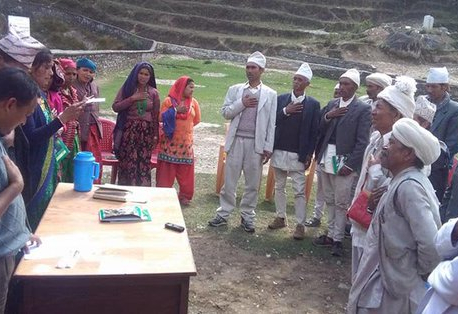
Shamans, faith healers vow to eradicate Chhaupadi
BAJURA, April 18: Shamans of Badimalika Municipality have assured that they will co-operate with the municipality to eradicate the ill-practice of... Read More...
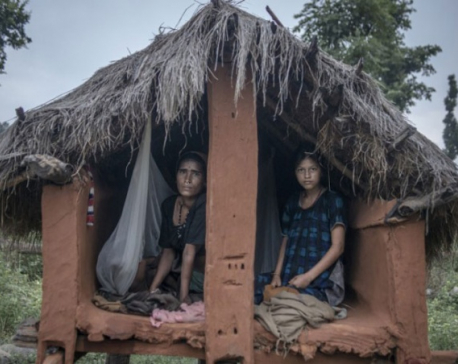
Chhaupadi: Till when?
There is this small mud hut outside almost every house in Bajura district. Temporarily made, dirty, unmanaged and... Read More...

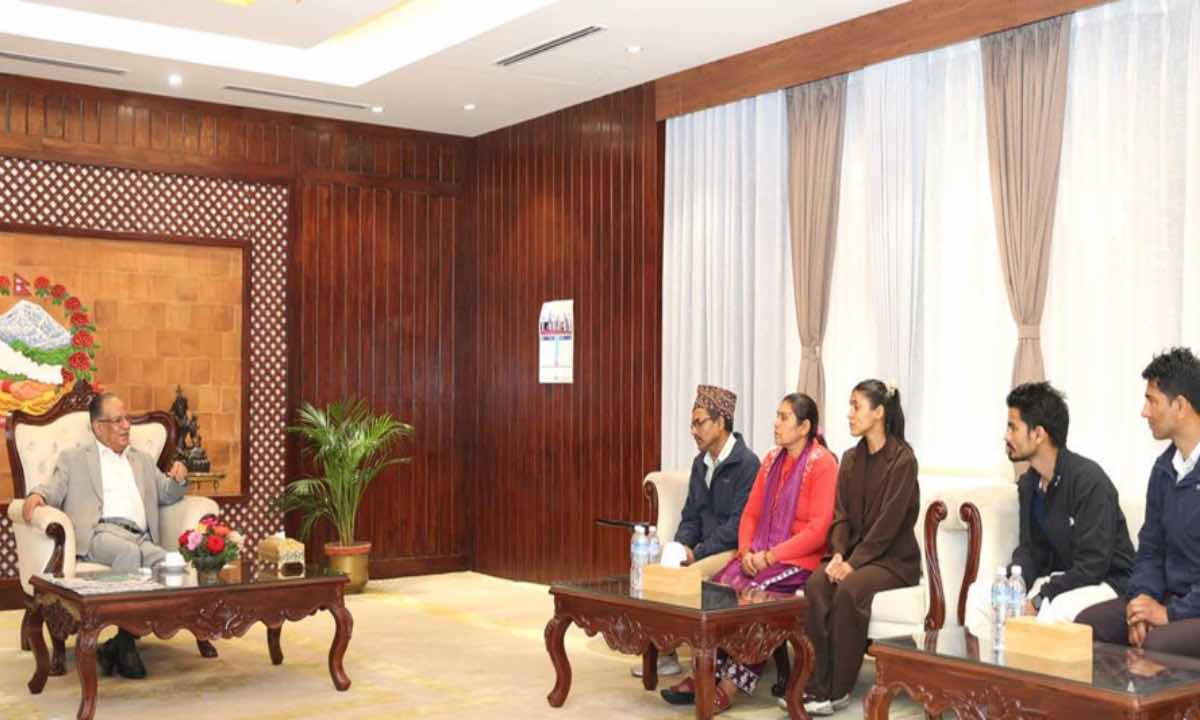
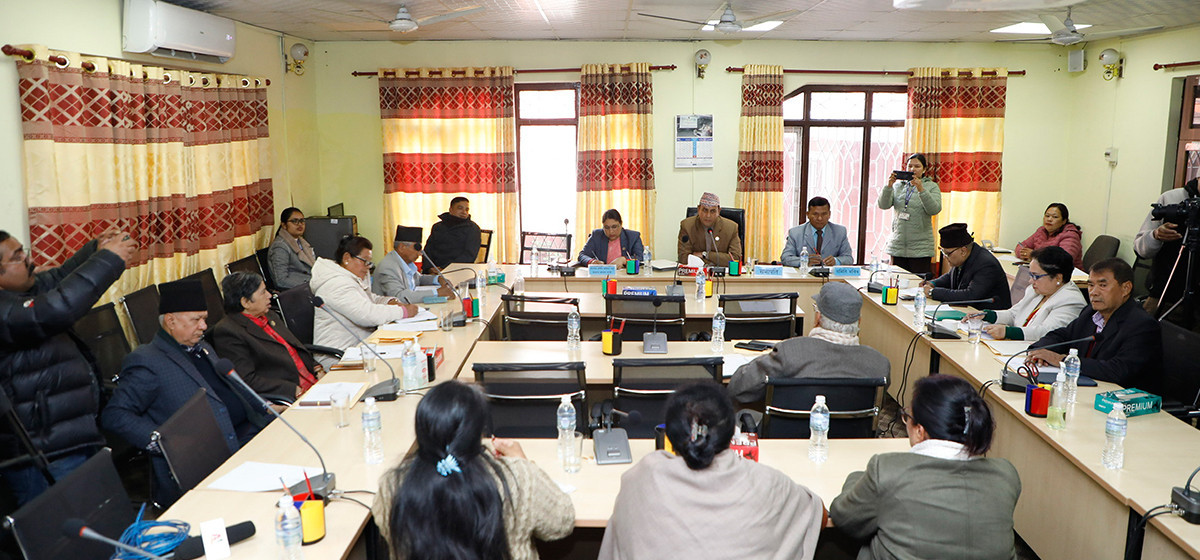

Just In
- Fire destroys wheat crop in Kanchanpur, Kailali
- Bipin Joshi's family meets PM Dahal
- State Affairs and Good Governance Committee meeting today
- Gold items weighing over 1 kg found in Air India aircraft at TIA
- ACC Premier Cup semi-final: Nepal vs UAE
- Sindhupalchowk bus accident update: The dead identified, injured undergoing treatment
- Construction of bailey bridge over Bheri river along Bheri corridor reaches final stage
- Taylor Swift releases ‘The Tortured Poets Department’












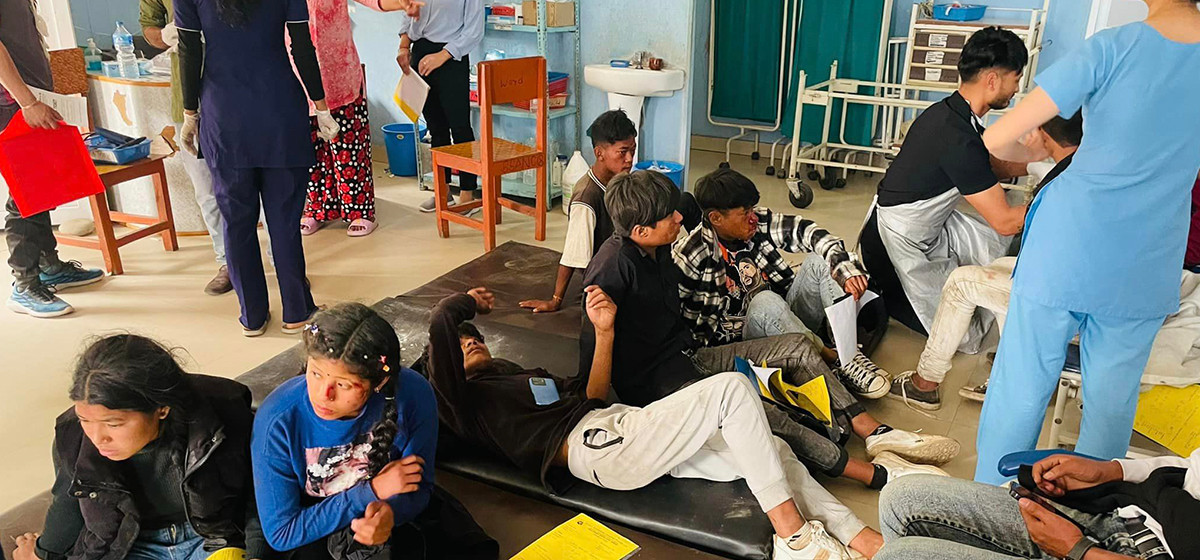


Leave A Comment